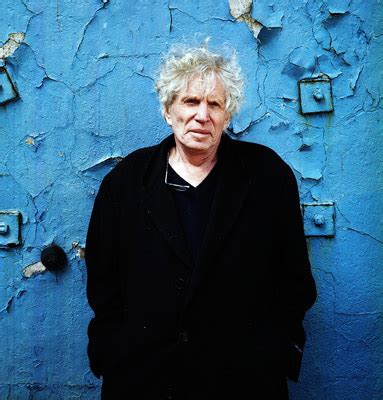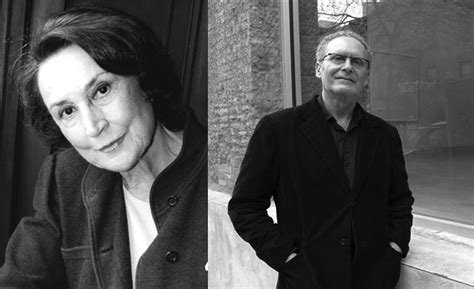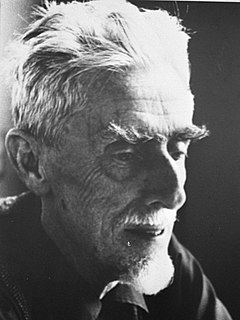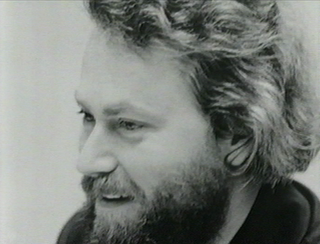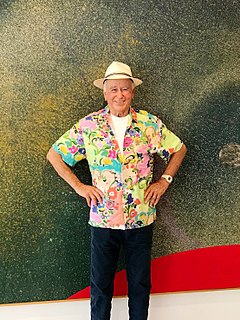A Quote by Dennis Oppenheim
Most of my work comes from ideas. I can usually do only a few versions of each idea. Land Art and Body Art were particularly strong concepts which allowed for a lot of permutations. But nevertheless, I found myself wanting to move onward into something else.
Related Quotes
Every morning I'd have coffee with my wife and we would discuss ideas. Sixty percent of what I did for the stores was concepts. The other forty percent was correcting and cleaning up other concepts in house, or doing final art on my concepts. Most of my concepts were so finished they could turn them over to somebody else.
I think the four land artists I showed all worked within a few years of each other. And they were standard bearers, I suppose, for land art. They each did very separate things. Apparently, later in California, a lot of artists started working in that medium and there was something of a rush of earthworks. But I wasn't involved with that.
To tell you the truth, I am rather perplexed by the concept of 'art'. What one person considers to be 'art' is often not 'art' to another. 'Beautiful' and 'ugly' are old-fashioned concepts that are seldom applied these days; perhaps justifiably, who knows? Something repulsive, which gives you a moral hangover, and hurts your ears or eyes, may well be art. Only 'kitsch' is not art - we're all agreed about that. Indeed, but what is 'kitsch'? If only I knew!
What the art historians had forgotten is that in Chinese, Japanese, Persian, and Indian art, they never painted shadows. Why did they paint shadows in European art? Shadows are because of optics. Optics need shadows and strong light. Strong light makes the deepest shadows. It took me a few years to realize fully that the art historians didn't grasp that. There are a lot of interesting new things, ideas, pictures.
Art is a creative effort of which the wellsprings lie in the spirit, and which brings us at once the most intimate self of the artist and the secret concurrences which he has perceived in things by means of a vision or intuition all his own, and not to be expressed in ideas and in words-expressible only in the work of art.
I view all art as an effort to translate brain concepts into a work. These brain concepts are synthetic ones - the result of many experiences. But a single work of art, or even a series of works, more often than not cannot translate these synthetic concepts adequately. Yves Saint Laurent once said that he suffered greatly when creating. He is not alone in that. Most artists do the same and say as much.
The art and architecture of the past that we know is that which remains. The best is that which remains where it was painted, placed or built. Most of the art of the past that could be moved was taken by conquerors. Almost all recent art is conquered as soon as it's made, since it's first shown for sale and once sold is exhibited as foreign in the alien museums. The public has no idea of art other than that it is something portable that can be bought. There is no constructive effort; there is no cooperative effort. This situation is primitive in relation to a few earlier and better times.
I was desperately unhappy with it [Blade Runner]. I was compelled by contract to record five or six different versions of the narration, each of which was found wanting on a storytelling basis. The final version was something that I was completely unhappy with. The movie obviously has a very strong following, but it could have been more than a cult picture.
What strikes me is the fact that in our society, art has become something which is related only to objects and not to individuals, or to life. That art is something which is specialized or which is done by experts who are artists. But couldn't everyone's life become a work of art? Why should the lamp or the house be an art object, but not our life?
All art is propaganda. ... The only difference is the kind of propaganda. Since art is essential for human life, it can't just belong to the few. Art is the universal language, and it belongs to all mankind. All painters have been propagandists or else they have not been painters. ... Every artist who has been worth anything in art has been such a propagandist. ... Every strong artist has been a propagandist. I want to be a propagandist and I want to be nothing else. ... I want to use my art as a weapon.
